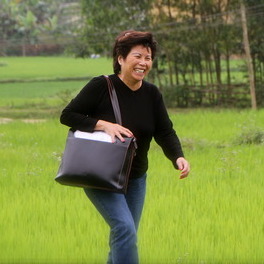A Quote by Diane Ackerman
Above all, we ask the poet to teach us a way of seeing.
Related Quotes
Ask not of me, love, what is love?
Ask what is good of God above;
Ask of the great sun what is light;
Ask what is darkness of the night;
Ask sin of what may be forgiven;
Ask what is happiness of heaven;
Ask what is folly of the crowd;
Ask what is fashion of the shroud;
Ask what is sweetness of thy kiss;
Ask of thyself what beauty is.
If Jesus is a teacher only, then all He can do is to tantalize us by erecting a standard we cannot come anywhere near. But if by being born again from above we know Him first as Savior, we know that He did not come to teach us only. He came to make us what He teaches we should be. The Sermon on the Mount is a statement of the life we will live when the Holy Spirit is having His way with us.
One of the appeals of William Carlos Williams to me is that he was many different kinds of poet. He tried out many different forms in his own way of, more or less, formlessness. He was also a poet who could be - he was a love poet, he was a poet of the natural order and he was also a political poet.
Judge: And what is your occupation in general? Brodsky: Poet, poet-translator. Judge: And who recognized you to be a poet? Who put you in the ranks of poet? Brodsky: No one. And who put me in the ranks of humanity? Judge: Did you study it?...How to be a poet? Did you attempt to finish an insitute of higher learning...where they prepare...teach Brodsky: I did not think that it is given to one by education. Judge: By what then? Brodsky: I think that it is from God.
For you see, the face of destiny or luck or god that gives us war also gives us other kinds of pain: the loss of health and youth; the loss of loved ones or of love; the fear that we will end our days alone. Some people suffer in peace the way others suffer in war. The special gift of that suffering, I have learned, is how to be strong while we are weak, how to be brave when we are afraid, how to be wise in the midst of confusion, and how to let go of that which we can no longer hold. In this way, anger can teach us forgiveness, hate can teach us love, and war can teach us peace.
If true, the Pythagorean principles as to abstain from flesh, foster innocence; if ill-founded they at least teach us frugality, and what loss have you in losing your cruelty? It merely deprives you of the food of lions and vultures...let us ask what is best - not what is customary. Let us love temperance - let us be just - let us refrain from bloodshed.
We do not find happiness by being assertive. We don't find happiness by running over people because we see what we want and they are in the way of that happiness so we either abandon them or we smash them. The Scriptures don't teach us to be assertive. The Scriptures teach us — and this is remarkable — the Scriptures teach us to be submissive. This is not a popular idea.







































